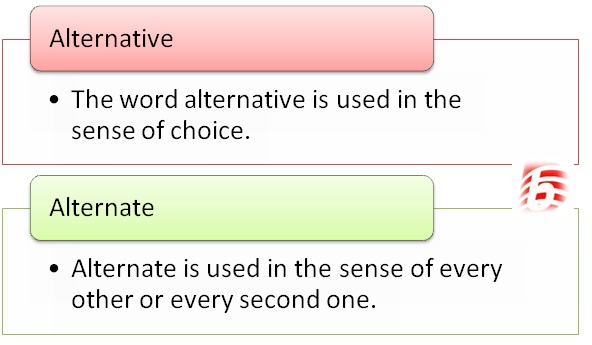Alternate vs Alternative
Although the words alternate and alternative are frequently used interchangeably, they should not be, as there is a significant difference between them. Alternate refers to every other or every second one, while alternative refers to a choice. The word alternate was created in the early 16th century, whereas alternative was created in the mid-16th century.
What does Alternate mean?
The word alternate is not related to choice, but rather to position. Examples of alternate positions include odd and even numbers, and every other day in a week. In sentences, alternate refers to every other or every second one, and gives the sense of succeeding by turns or one following the other in succession of time or place.
What does Alternative mean?
Alternative refers to a choice between two or more things offered to a person. It can be a choice between two objects or among several things offered for selection. Unlike alternate, alternative has nothing to do with every other or every second one. The word alternative is reciprocal in purpose and disjunctive in character, representing the course of action or the thing offered in place of another.
Key Takeaways
- Alternate refers to every other or every second one, while alternative refers to a choice.
- Alternate is related to position, while alternative is related to choice and is reciprocal in purpose.
- Alternative is disjunctive in character and represents the course of action or the thing offered in place of another.
